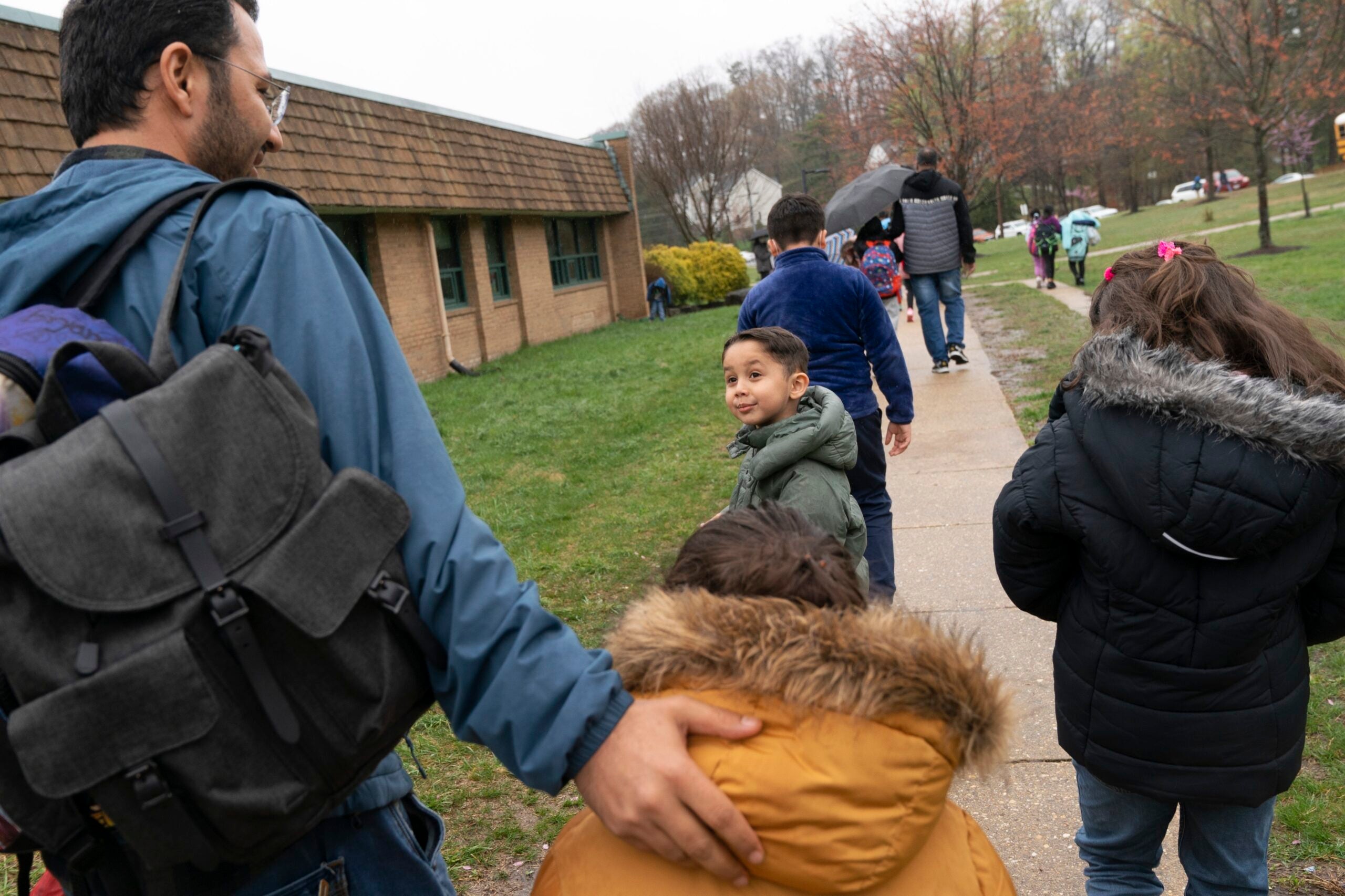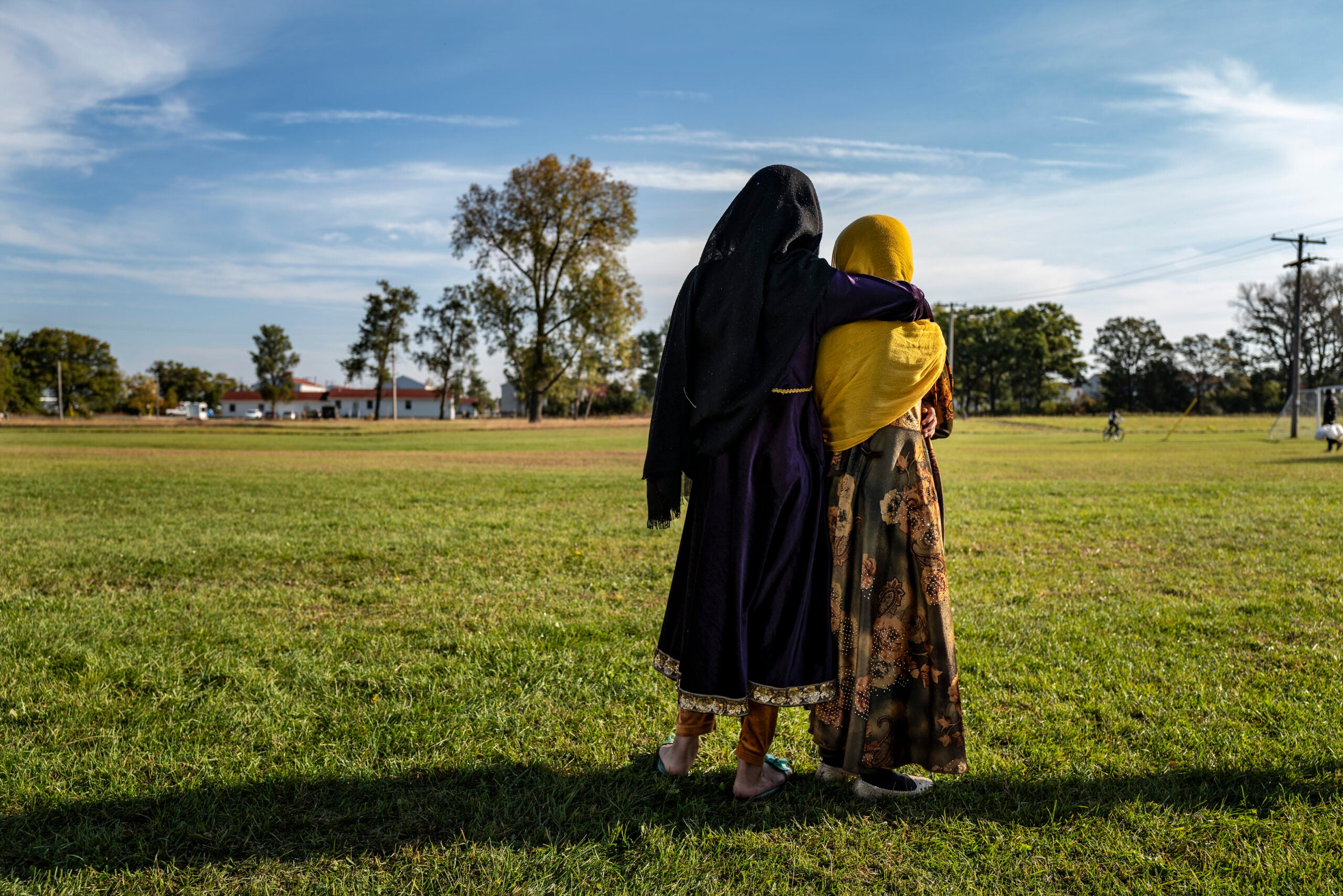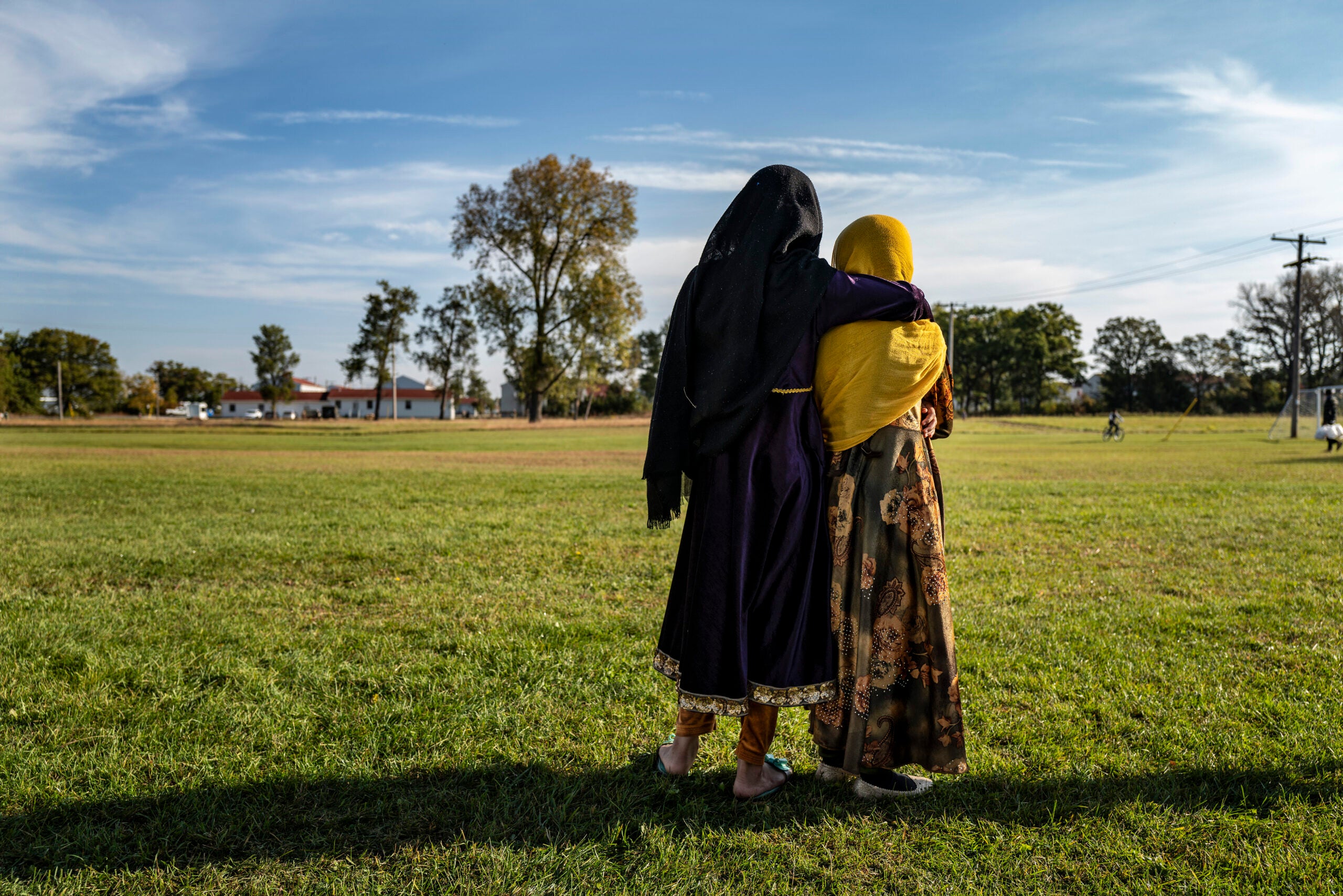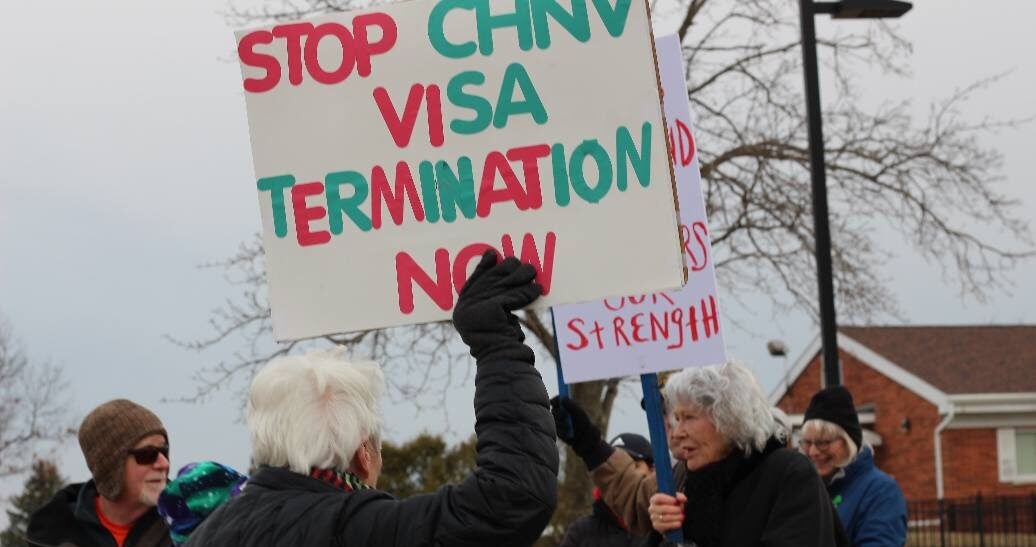After leaving his home in Afghanistan during the United States military withdrawal in 2021, Sayed Nasrullah Nabil was admitted into the country under what’s called humanitarian parole.
It’s an infrequently used immigration status that lasts two years and allows a person to work while applying for a more permanent status.
Most of the Afghan evacuees were processed into the country under this status because it allowed immigration officials to move quickly during the emergency evacuation and the Taliban’s takeover of Kabul.
News with a little more humanity
WPR’s “Wisconsin Today” newsletter keeps you connected to the state you love without feeling overwhelmed. No paywall. No agenda. No corporate filter.
But many of these people are still waiting almost two years later to have their application for asylum or a special immigrant visa approved because of a backlog of cases in the immigration system.
Nabil now lives in Wausau and works to help refugees integrate into their new community through the Ethiopian Community Development Council. He estimates that 70 percent of the Afghans his organization works with are still under humanitarian parole — including his own family. They filed their application for a green card almost eight months ago and they’re still waiting to hear back.
“It is uncertainty for most of the people, including me and my family,” Nabil said. “You don’t know what will happen. After your two years of parole ends, then you may not be able to work or may not be able to legally stay here. And it’s not in your hands, you know. You don’t know what will happen to you.”
That’s why Nabil and many other refugees and resettlement groups across the state recently celebrated when the U.S. Department of Homeland Security announced that Afghans with humanitarian parole will be able to reapply for their temporary status.
Grant Sovern is an immigration attorney at Quarles & Brady in Madison and is on the board of directors for the Community Immigration Law Center. He said the extension was “desperately needed” and immigration advocacy groups like his have been urging officials to take some kind of action.
“Almost all of the families who have come in with this status are working now, and that’s the only support they have for their families,” Sovern said. “The real concern was that they were going to run out of their authorization to work in the U.S., which would be terrible for the families and terrible for the employers who employ them.”
Sovern said Afghans were initially told their asylum cases would have a decision within 90 days of applying. But U.S. Citizenship and Immigration Services has not kept to that timeline over the last two years.
“None of those have been adjudicated yet, even though they’re supposed to have an answer within 90 days,” he said. “I don’t know of any denied (applications) and I only know of one in the whole state that’s been approved. So it’s sort of a black hole right now.”
He said there’s a network of around 150 volunteer attorneys working to help the roughly 800 Afghans now living in Wisconsin. As the clock has ticked down on people’s parole status, Sovern said these lawyers have been trying to help residents apply for temporary protected status or file other paperwork so they can legally remain working. And now that parolees can apply for an extension, Sovern said they’re already gearing up to help people fill out the new applications.
Nabil said his organization is also preparing to help Afghans apply for extensions, which he said is expected to start in June. He said it’s unclear how complicated the new forms will be or how much information the government will be able to pull from their existing documents.
“It creates another burden, extra work. Thousands of people will reapply now and they need to be processed, print cards and then some attorneys to help these people,” Nabil said. “We didn’t think of this. We were thinking of if the government expedited the process of other cases, approved the cases and then people could get their green cards and legal long-term or permanent status. But I think the government decided that they are not able to process so quick this many cases.”
Sovern agrees that it’s frustrating that evacuees will have to file yet another set of applications. But he’s grateful that the department is doing something to help Afghans, while federal lawmakers have taken no action to smooth the legal process or allocate money to help work through the thousands of cases.
Mary Flynn, immigration program director for Lutheran Social Services of Wisconsin & Upper Michigan, said she is also disappointed that Congress has not acted on legislation called the Afghan Adjustment Act, which she said would have provided immediate stability for evacuees. Flynn said her organization is working with Catholic Charities to connect the people they’ve settled in the Milwaukee area with legal help.
After living in Wisconsin for more than a year, Flynn said the people she’s helped resettle in Wisconsin are rebuilding their lives and getting more established.
“We have people who are doctors, attorneys, nurses, manufacturers, engineers,” she said. “We have people who want to start restaurants. We have people that were tailors, teachers, women’s rights specialists, just kind of across the diaspora of any society. It really makes you appreciate that such a significant sample of Afghans who helped our country and our military were able to make it to the United States.”
But she said that excitement is dampened by the fact that most people had to leave behind family members in the evacuation. Many people hope to one day sponsor their family members so they can come to the U.S., too. But that’s something they can’t do until they’re granted permanent status themselves.
Wisconsin Public Radio, © Copyright 2025, Board of Regents of the University of Wisconsin System and Wisconsin Educational Communications Board.






